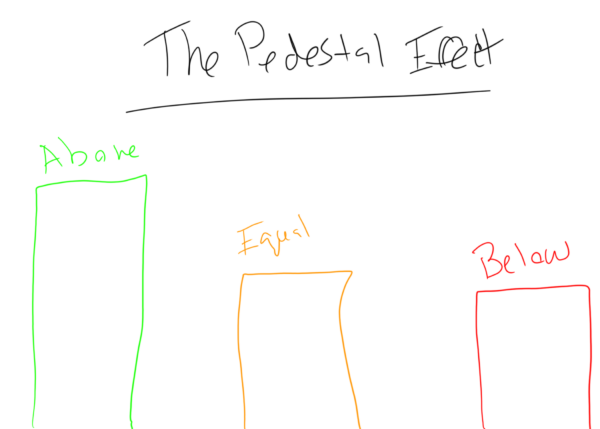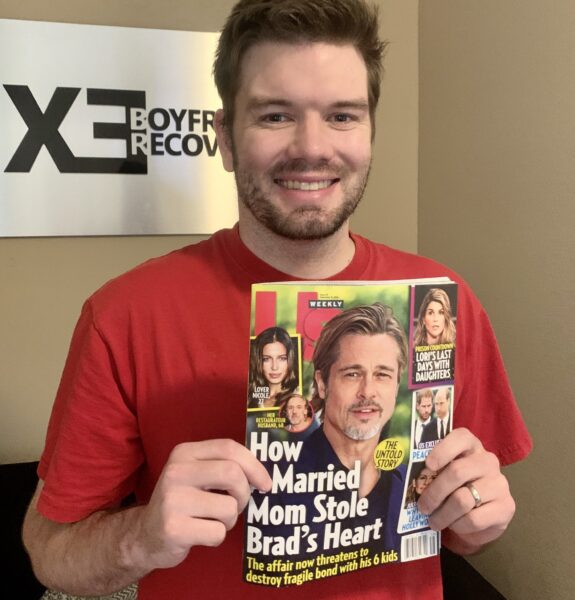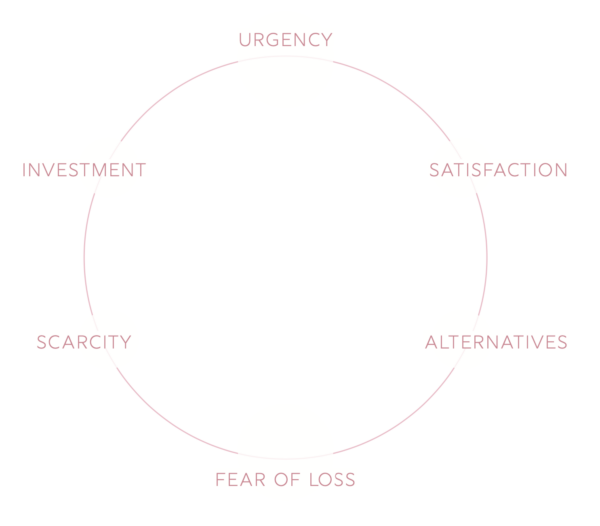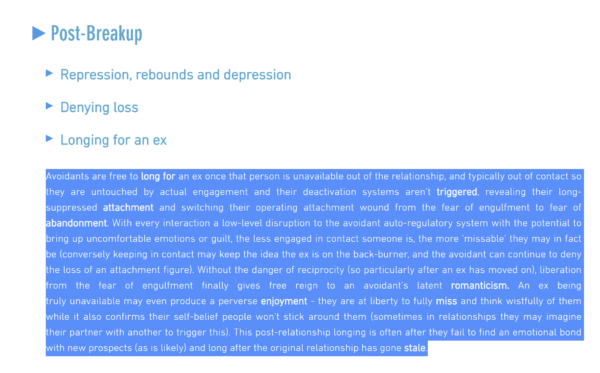Ever wonder what happens if you actually don’t chase your ex after a breakup?
Well, I just spent the better part of two days figuring that out and what resulted was a brand new concept called the pedestal effect.
So today, I’m going to dive in to the psychology of what happens when you actually DON’T chase an ex.
- We are going to look at the pedestal effect
- How it can change over time
- The biggest mistake our clients make
- Why you can’t pretend to move on from an ex
First things first, what is it that actually happens when you don’t chase an ex
Your Exes Natural Assumption When They Break Up With You = They think you are obsessing about them and therefore they place you below them on the metaphorical pedestal. By not chasing them you actually give yourself the opportunity to regain leverage that you would have otherwise lost.
Really it revolves around a new concept I just came up with called the pedestal effect.

What Are Your Chances of Getting Your Ex Boyfriend Back?
Take the quizThe Pedestal Effect
On a surface level every romantic relationship we have is subject to a pedestal placement.
There are three levels to the pedestal.
- Above us on the pedestal; The unobtainable and respectable
- Equal to us on the pedestal : The obtainable and respectable
- Below us on the pedestal: The obtainable and disrespected
The dream for most of us in our romantic relationships is to be dating someone above us on the pedestal.
I’ll use myself as a guinea pig here to prove my point.
Let’s say that you were given a choice between dating me or Brad Pitt,
Who do you choose? Who is more attractive as a partner? And no I’m not just talking about looks because I got Brad beat there. I’m talking about the whole package.
Naturally you would hold Brad Pitt on a pedestal. He’s an acting superstar. You’d feel intimidated by him I’m sure. It’s not that he’s better than you in real life. It’s more like you believe he is when he isn’t.
My research on commitment has taught us that we are often looking for the following things,
- Satisfaction
- Alternatives
- Investment
- Urgency
- Scarcity
- Fear of Loss
But in my opinion the criteria we used to determine our placement on a “pedestal” revolves around,
- Satisfaction
- Alternatives
- Investment
And that leads me to my next point.
The Pedestal Effect Changes Over Time
Some of us remain above on the pedestal over the course of a relationship but most of our positioning changes over time based on how events unfold.
Let’s take Brad Pitt as an example.
So, you have him above me on the pedestal, that’s fine.
At first you are incredibly satisfied but over time, with all the kissing and love scenes he probably has to do you grow jealous and anxious. All of a sudden you aren’t so satisfied. This knocks him down a peg.

What Are Your Chances of Getting Your Ex Boyfriend Back?
Take the quizLet’s use another example now with your ex.
You may have originally been placed above your ex on the pedestal but the more he got to know you the less mystery there is and maybe he started viewing you as an equal. There’s nothing wrong with that but let’s say you were really anxious as well and it just became too much to handle. Eventually he starts believing he’s better than you or that he could do better than you. Now you are below him on his metaphorical pedestal.
The general rule of thumb: Any kind of change that causes him to lose respect for you can cause him to knock you down on his pedestal.
But it’s also true that you can improve your “pedestal placement” after the fact.
The Mistake Most Of Our Clients Make
The mistake most of our clients make is that they are anxious by nature which means that they actually play into their exes assumption about them. Thereby placing them lower on the pedestal. It’s weird to look at it this way but think of it like this.
Any time you are “above” someone on the pedestal you believe that you are better than those below.
An anxious person.
Well, they beg, plead and try to fix things so they can get their ex back which just in turn causes their ex to position them further and further down on the pedestal. Feeding into this lie that the ex believes they are better. When in reality they aren’t.
In other words, our clients chase their exes far too much after a breakup when their goal should be the exact opposite, it should be to outgrow their ex.
Not only is there evidence PROVING that moving on is the smartest thing to do to make an ex want to come back,
But a new theory from Erika Ettin, the founder of a dating website called Little Nudge, has also suggested that our value to other human beings might be completely perceived by how busy we are.
The less someone responds or reciprocates to one’s advances, the more perceived value the pursuer thinks the person has.
This theory by Erika has actually been backed up by a study done by a pair of researchers from the University of Rochester ,
“Playing hard to get makes it seem as if you are more in demand—we call that having higher mate value,” says Harry Reis, a professor of psychology and Dean’s Professor in Arts, Sciences & Engineering at Rochester.
“People who are too easy to attract may be perceived as more desperate,” says coauthor Gurit Birnbaum, a social psychologist and associate professor of psychology at the IDC Herzliya. “That makes them seem less valuable and appealing—than those who do not make their romantic interest apparent right away.”
So, by not chasing your ex and instead focusing on moving on you can actually improve your position on the pedestal.
Pretending To Move On From An Ex Vs. Actually Moving On
So, what do our actual studies have to say about the playing hard to get phenomenon with an ex? Well, it’s a little different because an ex has already gotten you so you almost have to work extra hard to convince them that you have moved on.
Which leads me to a very interesting question.
Is this something you can just fake? Can you pretend to move on from an ex?
My natural assumption would be yes, you could but when I actually interviewed real people who got their exes back they were adamant about saying NO you actually have to begin moving on.
One potential explanation is that pretending to move on doesn’t give off the necessary signals to convince your ex that it’s authentic while actually moving on does.
It’s like this, exes are really good at picking up when you aren’t being authentic and they should be, this person knows you better than most people. They were probably intimate both physically and emotionally. To truly convince them that you are moving on you need to actually move on.
But doing this actually flips the script. It upends their expectations.
Going back to the pedestal theory, your ex naturally assumes that you hold them on a pedestal. When they suddenly realize you don’t. Well, that’s when their entire worldview comes crashing down and the fun begins.
So, going back to the original question. What happens if you stop chasing your ex and start outgrowing them is they’ll start looking around trying to understand why you aren’t obsessing over them anymore and I’d much rather prefer that scenario for you more than the other one.




